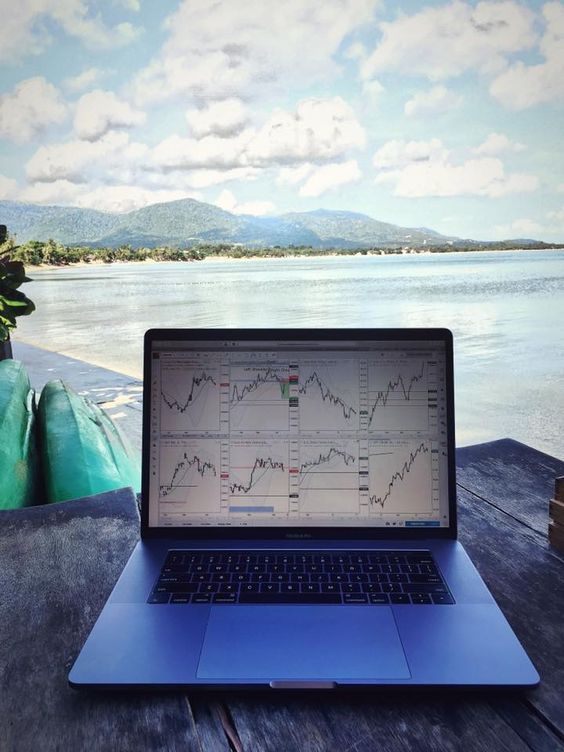The New Geopolitical Landscape: Navigating 2024’s Challenges
#Collaborative post
For decades, globalization and geoeconomics shaped the world order, fostering interconnectedness and interdependence among nations. However, the past few years have ushered in a new era marked by heightened geopolitical risks. Events such as the COVID-19 pandemic and the Russia-Ukraine conflict have significantly altered global structures and relationships, creating a landscape where geopolitical concerns are at the forefront of international affairs. To effectively navigate the stock market in 2024, understanding geopolitical dynamics is essential. Geopolitical events can significantly influence market trends, affecting everything from commodity prices to tech stocks. How to start trading studying geopolitical risks provides valuable insights into potential market movements and helps in making informed decisions.
For instance, the Russia-Ukraine conflict has not only caused fluctuations in energy prices but also impacted global supply chains and trade relationships. Recognizing these patterns can guide investors on when to enter or exit positions. Additionally, the strategic competition between the US and China influences technology and manufacturing sectors, presenting both risks and opportunities.
By staying informed about geopolitical developments and understanding their market implications, novice traders can better anticipate market shifts and enhance their trading strategies. Integrating geopolitical risk analysis into your trading approach ensures a comprehensive understanding of the factors driving market volatility, ultimately leading to more informed and strategic investment decisions.
A Shift in US Policy
The United States has adopted a policy of responsible competition with rival superpowers while pursuing its own interests. However, this strategy is accompanied by increasing geopolitical tensions. Energy and climate change remain politically polarizing issues, with global progress on the climate transition notably lacking. Yet, the recent energy price shock, triggered by Russia’s invasion of Ukraine, could act as a catalyst for decarbonization efforts. The Inflation Reduction Act in the US provides significant incentives for renewable energy, presenting investment opportunities despite ongoing political debates.
The Enduring Impact of COVID-19
The global response to COVID-19 continues to polarize, with profound economic and social consequences. One significant outcome is a reevaluation of globalization, as countries seek to de-risk by reducing reliance on international supply chains. This trend reflects a broader shift towards economic nationalism and protectionism, challenging the decades-long trend of increasing global integration.
Rising Cyber Threats
Cyberattacks have emerged as a significant geopolitical risk, becoming more frequent, severe, and sophisticated. These attacks threaten both individual organizations and national security, particularly as critical infrastructure becomes increasingly digitized. The US faces widespread ransomware issues, prompting calls for stricter safeguards. Europe has also seen notable cyber incidents, such as the attack on the European Parliament’s website in 2022. The repercussions of persistent cyberattacks extend to financial markets and the economy, highlighting the need for robust cybersecurity measures and international cooperation.

Key Geopolitical Risks in 2024
1. Russia-NATO Tensions: The ongoing Russia-Ukraine conflict remains a significant geopolitical risk in 2024. It has initiated a humanitarian crisis and disrupted global capital flows, trade, and commodity markets. NATO-Russia relations are at their most precarious since the Cold War, with economic sanctions on Russia and support for Ukraine from NATO members heightening tensions. The risk of intentional or accidental escalation remains, with a direct global conflict, although unlikely, posing devastating consequences.
2. US-China Strategic Competition: The strategic competition between the US and China continues to be a source of geopolitical risk. Issues such as military presence in the South China Sea, technological advancements, and trade tensions have strained relations. Despite their complex and multidimensional relationship, both nations are committed to competing responsibly. However, the risk of escalating tensions and financial decoupling remains, potentially disrupting global financial markets and trade flows.
3. Climate Risk: Climate change is one of the most politically polarizing and significant geopolitical risks of 2024. Extreme weather events, species extinction, and resource scarcity are already evident, with profound impacts on national security and global stability. The need for international cooperation to address climate change is critical, yet geopolitical tensions hinder progress. The US Inflation Reduction Act has boosted investment in renewable energy, but resistance from fossil fuel-dependent countries poses ongoing challenges.
4. Energy Security: Energy security remains a top geopolitical concern, influenced by climate change, cybersecurity threats, and the war in Ukraine. Europe faces significant challenges after losing access to cheap Russian gas, leading to increased coal usage and posing a threat to the clean energy transition. The digitization of the energy sector also makes infrastructure vulnerable to cyberattacks, further complicating the energy security landscape.
The Path Forward: Pragmatism and Cooperation
In the face of these interconnected risks, a renewed trend towards pragmatism and cooperation is emerging. While protectionism and anti-globalization sentiments pose threats, there is also a growing recognition of the need for international collaboration. The response to Russia’s invasion of Ukraine has highlighted the importance of pragmatic partnerships to address global challenges.
Conclusion: Navigating the geopolitical risks of 2024 requires a multifaceted approach. Meaningful progress on issues like climate change, cyber threats, and energy security demands international cooperation and strategic planning. As geopolitical tensions rise, businesses and governments must embed geopolitical risk analysis into their strategies to adapt and thrive in this complex environment. Collaboration and pragmatic diplomacy will be key to addressing the challenges ahead and ensuring a stable and prosperous global future.